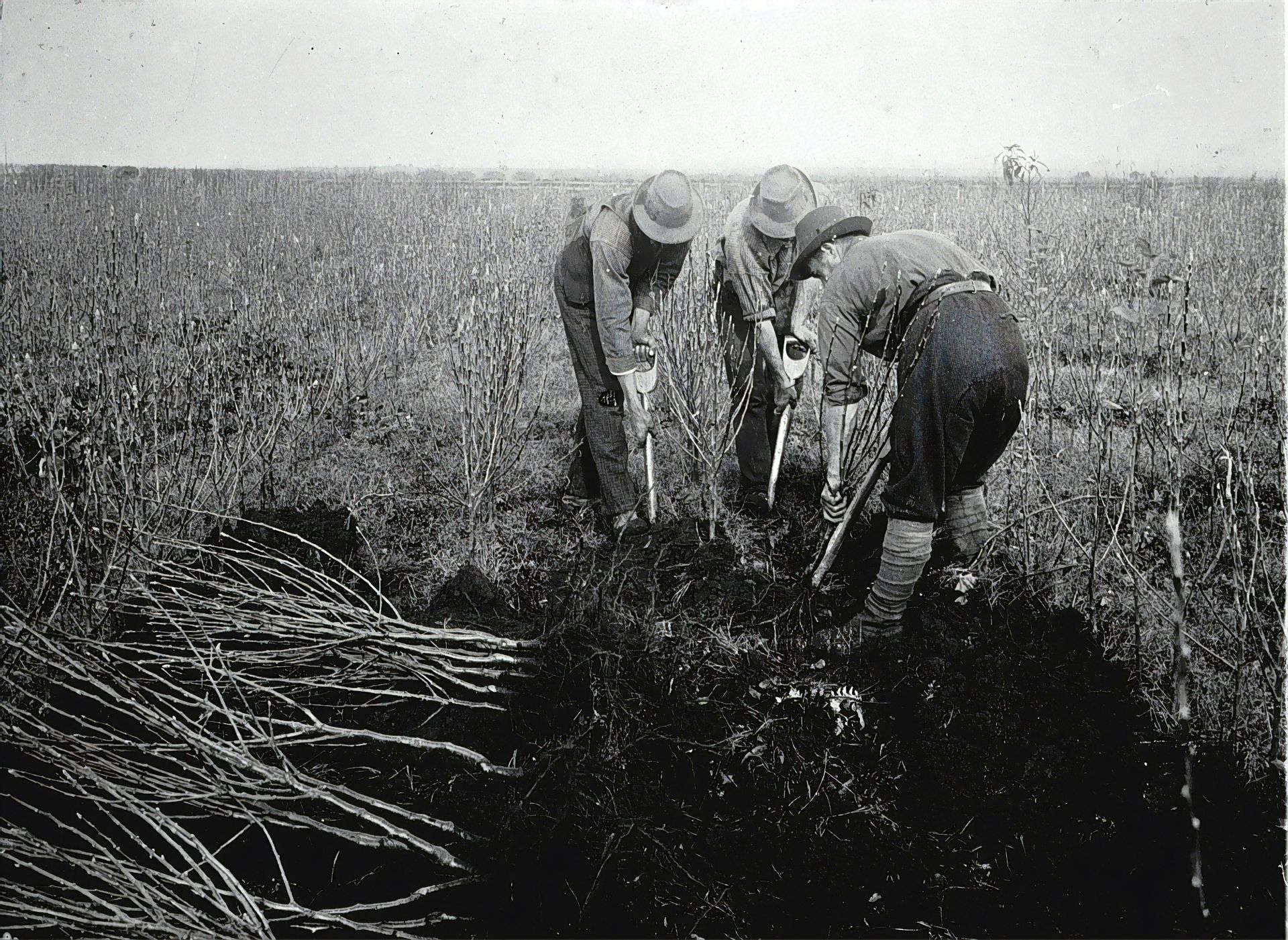10 Things I Learned from Moving Internationally
Thinking about a move around the globe?! Here are some things I've learned...! Some serious, some silly, perhaps one or two maybe even helpful.
1. Patience. Patience. Patience. Especially with packing/unpacking.
This could well be every one of the 10 points in this post. Everything about moving takes time. Lots of it. And while the nerves may be higher than usual, trusting the process and taking it one day at a time is a must (for the sanity and the sake of all those who live with you). Especially with packing and unpacking. The latter may be the worst, because when it comes to unpacking you are facing the final stretch to establishing a new normal routine. But it will take time. (Pro tip: start with the kitchen first). So have patience, recognise it's going to be a while before everything is where it should be. Do what you can, don't worry about the chaos of what's not done. Unpacked boxes are going to be your friend for a while, so better to embrace them.
2. Cell phone, wi-fi, vacuum cleaner, microwave, printer. Find your equivalent and buy it.
These were our essentials to get done early. I got the SIM cards for our phones the first full day, the Wi-Fi set-up the first weekend, the vacuum cleaner shortly after and the microwave and printer a week or so after that. These things make life functional for us. Find your equivalent and don't hesitate to get what you need. I would thoroughly recommend signing up to Which? independent consumer reviews (or whatever equivalent might be in your country). Wading through online customer reviews can be a minefield of confusion (I'm looking at you, Amazon). Independent reviews and comparisons were a big help with navigating the decisions that need to be made without wasting money on things that look good but prove to be duds.
3. The extra money is worth it for good customer service (and so pay the big bucks for full service international removals)
We had a bit of hiccup along the way with removals, partly because we tried to cut costs with the shipping. The company due to unload the shipping container in the UK and transport it to our new address wouldn't actually unload the thing for us (and the rep became a bit like an insolent teenager in helping us find a solution...). After some research, we chose Bishop's Move to step in and take over the UK customs, transport and removals side of things. They were communicative, helpful and all-round top quality from start to finish. Yes, the price tag was hefty, but boy was it worth it.
4. Measure your furniture before it ships. Size matters!
One last minute variable we could have avoided was the question of whether our furniture would actually be able to fit through our front door (answer: it was, but not all of it could get up the stairs). If we had taken the measurements of the larger pieces of furniture it would have helped a lot. We have two wardrobes that were able to get in but not upstairs. The gardening table was able to get through too. The chest of drawers I thought would be too wide for the space in the master bedroom fitted perfectly. When removal day comes around, it's so much easier if you know for certain that a piece will fit where you want it. This in turn, means you don't need contingency plans for other furniture. Getting furniture in and situated in the best place is like a big puzzle and the fewer variables the better!
5. You cannot over-inventory the stuff you're shipping
Lists, labels and more lists. If you have boxes, list them and their contents (not just for the TOR UK customs form). Colour label all your boxes (blue to the office, green to the master bedroom, red to the bathroom etc). Put descriptions on the boxes. It might seem like a hassle on the packing end, but consider it a gift to the future you that will have to do all the unpacking. Lists, labels and more lists. And if your packing company isn't doing it for you, take a photo of everything they're shipping for you.
6. Air-tags are great... until they're not
We bought a pack of airtags for transporting the dogs and for putting in our shipping container. Genius, right? That way we can track our pups and our property all the way from Houston to Oxford! Well... kind of... Yes, we were able to track the dogs at IAH and again it was a relief to see them in Paris-CDG after I turned my phone on and got on the airport wi-fi. Yes, it was fun to see our stuff on the port of Houston and again at the port of London. And it was helpful to be able to track the eta of our stuff from Norwich to Oxford on the day they were due to show up.
But... here's the thing: airtags don't have great signal when in the hold of a plane or in a shipping container at sea. We couldn't track the shipping container across the Atlantic as I'd hoped. Instead it looked like it was still in Houston until it magically jumped to London. Pointless, really. Likewise I was at the gate ready to board the plane to Paris and it looked like one dog was at the next gate over and the other dog in the middle of the runway. Neither dog seemed to actually be in the hold of the plane. In short, what was supposed to reassure me just made my anxiety ten times worse!
So airtags? They have their uses, but they have their limits too. Consider yourself warned!
7. Don't worry about eating perfectly, but do eat 3 meals a day
An international move is stressful. Don't worry about what you're eating (too much). Enjoy your favourite restaurants you're leaving behind and enjoy the foods of where you're going. Now is not the time to worry about waist lines. Life is stressful enough so give yourself a break. Though I would recommend not grazing; it does help to keep to 3 meals a day. It's a good thing to stop, take a break and be nourished after all the busyness of a big move.
8. Find the little things that bring you joy and they'll help keep you sane
What keeps you sane? Do that thing. For me, it was buying a kettle in advance (as well as a replacement coffee grinder that was exactly the same as our US one) and having it ready on arrival. In an empty home, with a mattress, two folding chairs and a small table for furniture, being able to reliably make a cup of tea or coffee was a spot of normal and familiar in the crazy of finding new rhythms and routines everywhere else. The little things matter.
9. If at all possible, do it with someone you love & respect (and communicate clearly!)
Whether it's your spouse (if you have one) or family or good friends, a move like this is best done with someone you love and respect working along with you. Stephen and I divided tasks up as needed and got to work. The downside was when one of us was about to switch off and the other breaks out with "I think we should sell it." assuming we both knew exactly what "it" was. I did it to Steve and he reciprocated. It can be irritating but it can also be really funny. Either way, (a) it's great to have companions to take the strain and share the load and (b) it's also important to keep lines of communication open, which might include a request for context when hit with something out of the blue or perhaps simply setting a gentle boundary: "I really can't take on more right now: can this wait till later?"
10. Keep a gratitude list and remember that your whole life is not in your hands, but in God's
It's pretty easy to get bogged down in the details and admin (and there is a LOT of admin). It can be frustrating and it's very easy to get caught up in the weeds of it all. I have a friend I text regularly, and we often exchanges texts where we share gratitude lists of what we are or what we
could be
grateful for. Sometimes I don't feel grateful at all, but I know a saner version of me in this moment would be grateful for the food on my plate, the husband at my side or the roof over my head. Whether it's something I feel grateful for in the moment or not, reminding myself of the good things God has given me helps with my perspective. It helps me remember the Giver as well. Yes, there are details and yes they can be frustrating, but this whole thing is in God's hands.
Obviously there was a lot more we learned along the way, but here are the top ones that have stood out for me. I hope you enjoyed this little glimpse into what we've learned the last few weeks. And if I've not said this to you another way: Happy New Year!
***



